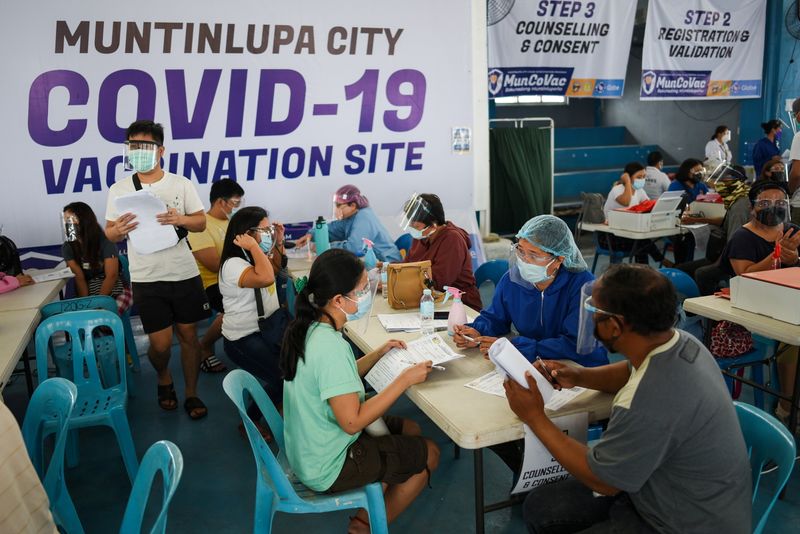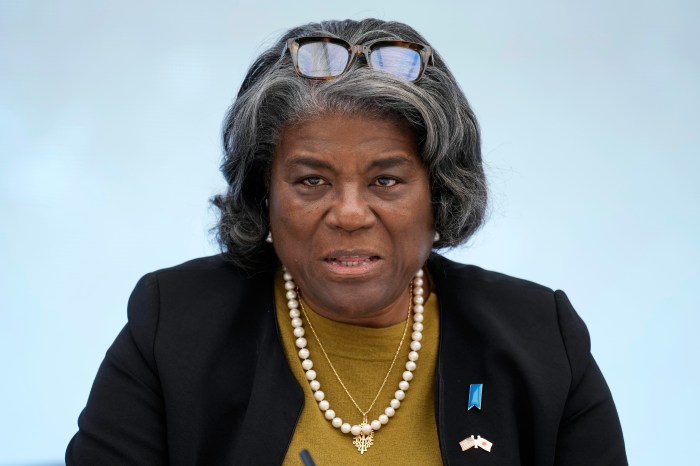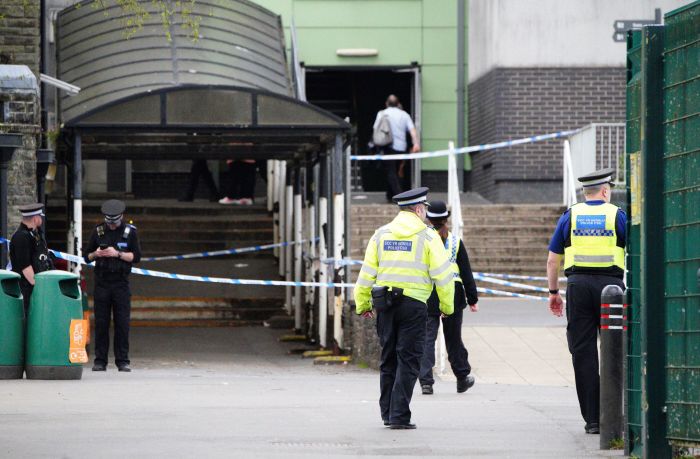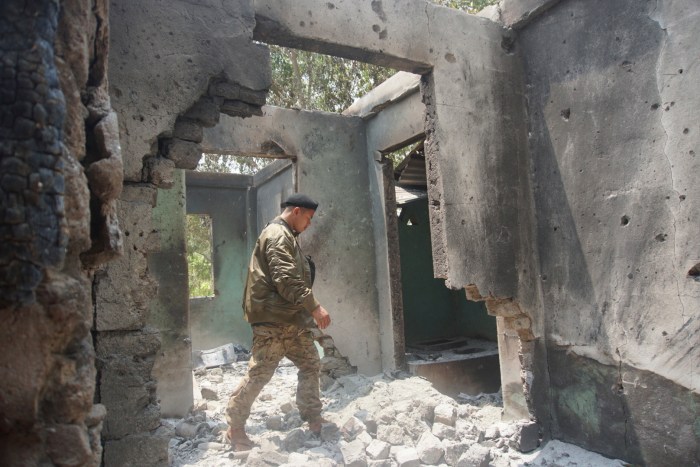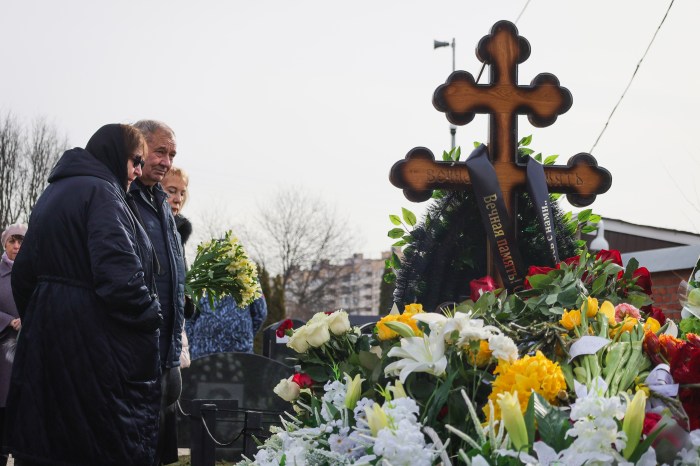(Reuters) – Here’s what you need to know about the coronavirus right now:
Philippines detects first local cases of Delta variant
The Philippines has recorded the country’s first locally acquired cases of the more infectious Delta variant, prompting authorities to reimpose stricter measures in some areas as health experts sought bans on social gatherings.
The Southeast Asian country is battling one of the worst COVID-19 outbreaks in Asia, but infection numbers have been declining since peaking in March and April, allowing for a gradual relaxation of restrictions.
Sixteen people had been found with the Delta variant, including five who had returned from the United Arab Emirates, Qatar and Britain between April and June, health undersecretary Maria Rosario Vergeire said.
Indonesia reports record rise in COVID-19 deaths
Indonesia reported a record increase of 1,025 deaths from COVID-19 on Friday, bringing the country’s total tally of fatalities to more than 71,000.
The world’s fourth most populous country is struggling to slow COVID-19 transmission even after imposing its toughest mobility curbs yet, while its immunisation rate is low, with just 5.8% of its 270 million people fully vaccinated.
South Korea weighs tighter restrictions
South Korea’s prime minister on Friday said tighter limits on private gatherings may be needed as authorities reported 1,536 new cases and treatment centres filled up, prompting calls for more people to be allowed to receive care at home.
South Korea was for months a coronavirus success story as it kept outbreaks under control with testing, tracing and social distancing, but the Delta variant has fuelled a fourth wave of infection among the unvaccinated.
Prime Minister Kim Boo-kyum asked local governments to standardise gathering limits to less than four people to avoid confusion in the non-metropolitan area, after imposing a semi-lockdown in the greater Seoul area.
Crisis could return quickly, England’s chief medical officer says
England’s coronavirus crisis could return again surprisingly quickly and the country is not yet out of the woods, chief medical officer Chris Whitty said on Thursday ahead of the lifting of legal restrictions.
The government is removing most pandemic restrictions in England from July 19, saying a rapid rollout of vaccines has largely broken the link between infections and serious illness or death.
Whitty said that the doubling time for hospitalisations was currently around three weeks, and that low numbers of people in hospital with COVID-19 currently could rise to serious levels over the next couple of months.
Mask mandate returns to Los Angeles
Los Angeles County will reimpose its mask mandate this weekend in the latest sign that public health officials are struggling with an alarming rise in cases tied to the Delta variant.
The county, home to 10 million people, is one of several jurisdictions to recommend or mandate wearing masks or other pandemic restrictions in recent days as cases rise to worrisome levels in many parts of the United States.
“We’re requiring masking for everyone while indoors at public settings and businesses, regardless of vaccination status so that we can stop the increased level of transmission we’re seeing,” the Los Angeles County Department of Public Health said on Twitter on Thursday.
Fiji’s COVID-19 infections surge
The Pacific island nation of Fiji has recorded a sharp increase in new COVID-19 infections and deaths as the country’s health services are stretched by the Delta variant.
After keeping the coronavirus largely at bay last year, Fiji registered a record 1,220 new cases in one day and an additional five deaths, health authorities said in a statement on Thursday.
Like most Pacific island nations, Fiji closed its borders to protect its population of about 900,000 people in the early stages of the pandemic. Now it is one of a small but growing number of countries in the region battling increased infections, including with Papua New Guinea.
(Compiled by Linda Noakes; Editing by David Clarke)

